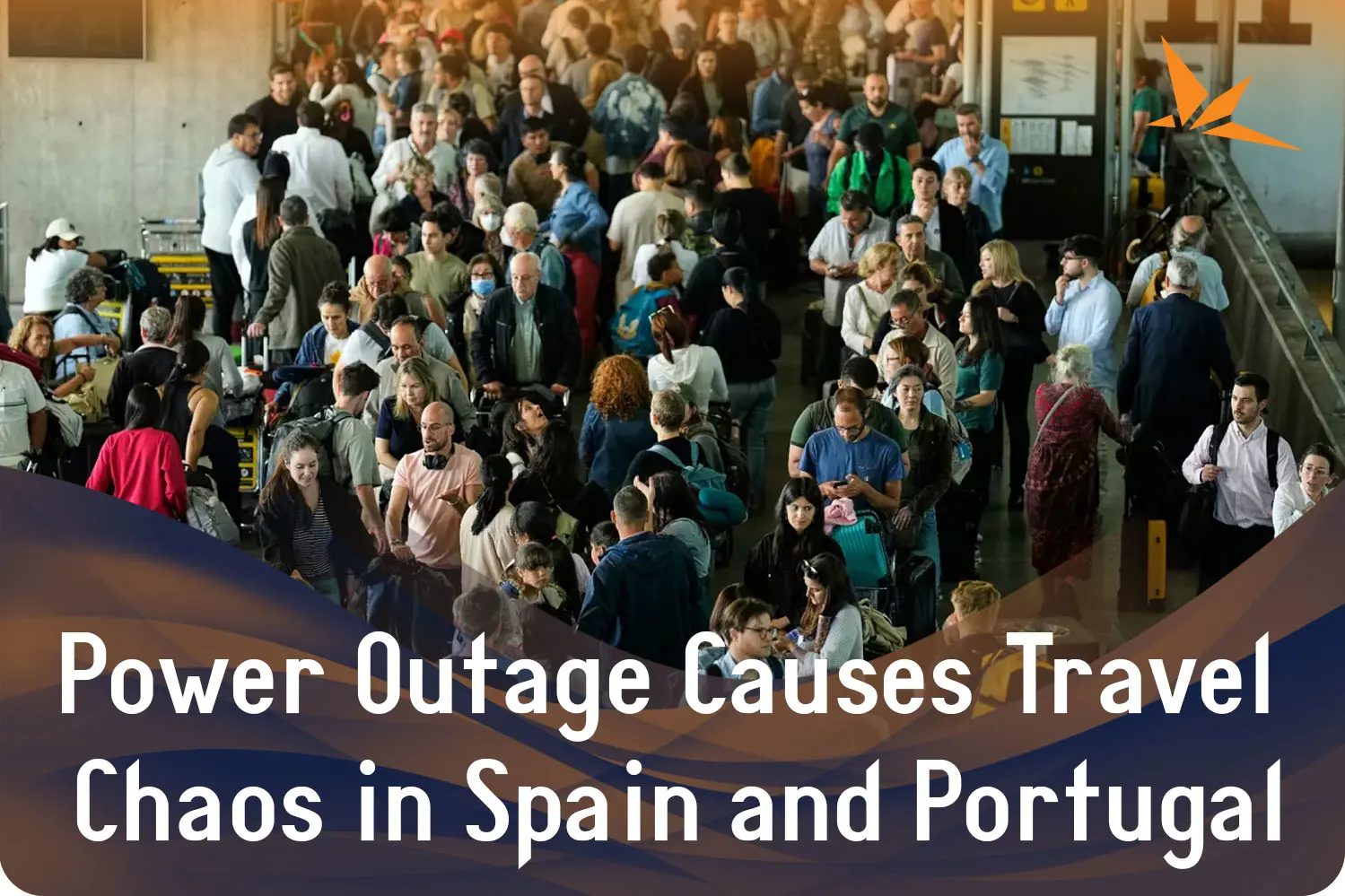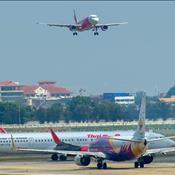
A massive power disruption plunged Spain and Portugal into disarray on Monday, triggering widespread travel chaos that continues to ripple through both nations. The blackout brought train services to a grinding halt and caused significant disruptions at major airports, leaving thousands of travelers stranded and scrambling for alternatives. While electricity has been largely restored, the residual effects are still causing considerable headaches for those with travel plans, underscoring the vulnerability of modern transportation systems to such widespread infrastructure failures. This incident serves as a stark reminder for individuals considering spain tour packages or portugal tour packages to factor in potential unforeseen disruptions and the importance of comprehensive travel insurance.
The sudden power outage prompted the Spanish Prime Minister, Pedro Sanchez, to declare a state of emergency at midnight on Monday, a measure that remains in effect. Efforts to restore power proved largely successful overnight, with Red Eléctrica, the operator of Spain's national grid, reporting that 99.16 percent of the country's power supply had been reinstated by Tuesday morning. The Portuguese government confirmed that their nation had fully recovered from the blackout. However, the initial paralysis of transportation networks has created a backlog of delays and cancellations, impacting both domestic and international travel. For those requiring a spain visa or a portugal visa, the disruption adds another layer of uncertainty to their travel arrangements. Furthermore, individuals planning to traverse multiple European countries with a schengen visa are also facing potential itinerary changes due to the interconnected nature of the travel network.
Lingering Disruptions at Airports: A Traveler's Guide
Airports in both Spain and Portugal experienced significant upheaval as a result of the power outage. Although complete closures were averted thanks to backup generators, the initial grounding of flights and subsequent rescheduling efforts continue to cause delays and cancellations.
Spain:
Aena, the company managing 56 airports across Spain, assured the public that all airports remained operational on Tuesday morning. However, they strongly advised passengers to:
- Monitor local travel advisories for the latest updates.
- Utilize flight trackers to stay informed about their specific flights.
- Check the status of public transportation services to airports, as these may also be experiencing residual delays.
- Consult directly with their airlines regarding potential rescheduling from Monday's disruptions.
Enaire, Spain's air navigation manager, reported that air traffic control had returned to normal at the affected control centers in Madrid, Barcelona, and Seville. Despite this, a considerable number of flights originating from these major cities faced cancellation or delays on Tuesday morning as airlines worked to normalize their schedules. Passengers departing from Madrid, Barcelona, and Seville were particularly urged to verify their flight status with their respective airlines before heading to the airport.
Portugal:
The Portuguese government confirmed that all airports in the country were operational. However, Lisbon Airport was still undergoing recovery efforts, resulting in a number of cancellations and significant delays for both arrivals and departures on Tuesday morning. The airport operator reiterated the advice for passengers to contact their airlines prior to traveling to the airport.
The extent of the disruption is highlighted by data from aviation analysts Cirium, who reported a total of 413 cancellations to and from Spain and 372 to and from Portugal on Monday. While some of these were intra-country flights and thus double-counted, it is estimated that approximately 500 flights across both nations were canceled due to the power outage. Lisbon Airport was the worst affected, with 45 percent of its departures grounded. Seville experienced a third of its departures being canceled, while Madrid and Barcelona each saw around 50 departing flights axed. This widespread disruption undoubtedly impacted numerous individuals holding a schengen visa with connecting flights through these hubs.
Passenger Rights: Compensation and Insurance
The extensive flight cancellations and delays have understandably left many travelers wondering about their rights and potential compensation. According to Ernesto Suarez, CEO of travel insurance company Gigasure, passengers affected by the disruption may be entitled to compensation under the ‘Denied Boarding Regulations’. Depending on individual circumstances, this could include reimbursement for alternative travel arrangements, meals, and accommodation if necessary.
However, Suarez noted a crucial point: "As the disruption has been caused by circumstances outside of the airline's control, passengers may not get any compensation directly from the operator." This highlights the importance of Schengen travel insurance. Suarez explained that:
- Individuals with travel insurance may have financial protection if their trip is delayed, canceled, or cut short due to the power outage.
- Those who purchased extended travel disruption cover might be covered for travel delay, abandoning or cutting short their trip, and/or additional costs incurred due to having to change accommodation or extend their stay.
- Passengers who have already travelled and are unable to return due to the power outages may find that many travel insurance policies will continue to provide cover until their return at no extra charge.
- With extended travel disruption cover, travelers might also be entitled to compensation for additional travel and accommodation costs until they can return, subject to the specific terms and conditions of their policy.
EasyJet responded to the crisis by offering stranded passengers in Spain or Portugal free-of-charge transfers within 72 hours or a flight voucher, demonstrating a proactive approach to assisting affected travelers.
Train Networks Struggle to Return to Normal
The power outage inflicted significant damage on train services in both Spain and Portugal, with disruptions continuing to affect rail travel on Tuesday.
Spain:
Emergency services in Spain reported rescuing approximately 35,000 passengers who were stranded on railways and metro systems on Monday when trains came to an abrupt halt. Many commuters were forced to resort to hitchhiking or walking long distances to reach their destinations.
Spanish rail operator Renfe provided the following updates on Tuesday:
- Urban train services in Madrid were operating at a reduced capacity of 50 percent.
- High-speed and long-distance services connecting Madrid with major cities such as Barcelona, Valencia, Murcia, Alicante, the Basque Country, and Algeciras had resumed normal operations.
- However, significant congestion and long queues were reported at stations as passengers with canceled trains attempted to board alternative services or rebook their tickets.
- Trains from Madrid to Huelva, Cadiz, Salamanca, Badajoz, and Galicia remained canceled until further notice.
The Madrid Metro also resumed partial service at 8:00 am on Tuesday, with approximately 80 percent of trains expected to run during the morning rush hour. Isabel Díaz Ayuso, President of the Community of Madrid, stated that all lines of EMTmadrid and Interurbanos were fully operational and would be free of charge throughout the day. The six transport interchanges in the region remained open as normal. Barcelona's metro system also reopened, with local authorities indicating that services were "getting back to normal." The aftermath of the disruptions, however, meant crowded platforms and potential delays as people attempted to continue their journeys.
Portugal:
Portugal's rail network also suffered considerable disruption due to the blackout. Adding to the travel woes, a national strike had already led to the suspension of train services on Monday. The government confirmed that power had been restored to the national transport network. Metro systems in Lisbon and Porto were operational again, although some minor delays were still being experienced.
France Largely Unaffected
While the power outage did affect some parts of France, particularly the Basque Country, the French electricity operator, RTE, reported that homes were without power for only several minutes and that all power had since been restored. Importantly, train services in France did not appear to have been impacted by the incident. This underscores the localized nature of the major disruptions in Spain and Portugal.
Implications for Future Travel and Tourism
The widespread travel chaos caused by this power outage serves as a critical reminder for travelers planning trips to Spain and Portugal. While both countries are popular destinations for spain tour packages and portugal tour packages, unforeseen infrastructure failures can significantly impact travel plans. Individuals considering applying for a spain visa or a portugal visa, or those traveling on a schengen visa through these countries, should:
- Ensure they have comprehensive travel insurance that covers disruptions, delays, and cancellations.
- Stay informed about potential travel advisories and news updates before and during their trip.
- Factor in potential delays and allow for flexibility in their itineraries.
- Keep important travel documents and contact information readily accessible.
The incident also highlights the need for robust infrastructure and contingency plans to mitigate the impact of such widespread power outages on critical transportation networks. As Spain and Portugal work to fully recover from this disruption, travelers are advised to remain patient and proactive in managing their travel arrangements. The allure of Iberian adventures, whether through meticulously planned spain tour packages or the charm of independent exploration facilitated by a portugal visa, remains strong, but a degree of preparedness is now more crucial than ever.
;More Travel News
-
 30-Apr-2025All Airlines Including PIA Flights to Skardu and Gilgit Cancelled Due to Sensitive Border Watch Along LOC
30-Apr-2025All Airlines Including PIA Flights to Skardu and Gilgit Cancelled Due to Sensitive Border Watch Along LOC -
 24-Sep-2025Direct Flight Pakistan to UK: PIA Prepares for Launch
24-Sep-2025Direct Flight Pakistan to UK: PIA Prepares for Launch -
 01-May-2025Kazakhstan Offers Golden Visa by Investment Program
01-May-2025Kazakhstan Offers Golden Visa by Investment Program -
 20-Jun-2020Umrah Packages,Top Scams To Avoid For Pakistani Pilgrims in Pakistan
20-Jun-2020Umrah Packages,Top Scams To Avoid For Pakistani Pilgrims in Pakistan -
 08-Oct-2025Discover the year-round wonders of Azerbaijan
08-Oct-2025Discover the year-round wonders of Azerbaijan -
 29-May-2020Hajj and Umrah Still Postponed Due to the Coronavirus
29-May-2020Hajj and Umrah Still Postponed Due to the Coronavirus -
 19-Mar-2023Cholistan Jeep Rally Schedule and Date
19-Mar-2023Cholistan Jeep Rally Schedule and Date -
 10-Apr-2025UAE Visa Policy Update - Pakistanis Can Apply for UAE 5-Year Visa Again!
10-Apr-2025UAE Visa Policy Update - Pakistanis Can Apply for UAE 5-Year Visa Again! -
 08-Jun-2022PIA Resumes Commercial Operations for China
08-Jun-2022PIA Resumes Commercial Operations for China -
 15-Feb-2020Top 10 Cities in the World For Your New Tourist Destination
15-Feb-2020Top 10 Cities in the World For Your New Tourist Destination -
 28-Jul-2025Family Umrah Packages with Kids Stay Free – Limited Time Offer!
28-Jul-2025Family Umrah Packages with Kids Stay Free – Limited Time Offer! -
 01-Feb-2022Top Airports in Pakistan in terms of Passenger Traffic
01-Feb-2022Top Airports in Pakistan in terms of Passenger Traffic
